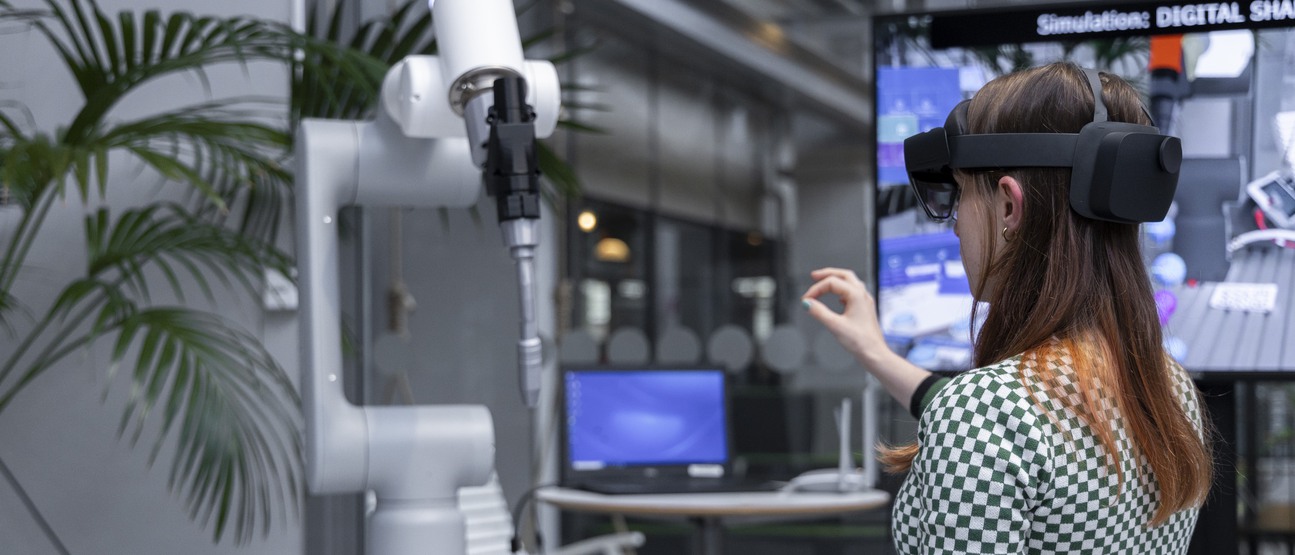
Digital tools based on AR and VR are increasingly used in industry to support operators. But how does it affect employees' skills and understanding of the systems they work with? The University of Skövde has been granted SEK 4.8 million to develop a guide for how the digital tools should be used in the manufacturing industry.
Digital tools with technologies such as augmented reality (AR) and virtual reality (VR) are becoming increasingly common features in the industry. The researchers refer to these tools as automated cognitive support (ACS). The tools are used, among other things, to support operators in the manufacturing industry during training and routine work. But the state of knowledge is unclear. While ACS is generally considered to have a number of positive working environment effects, there are also signals of the opposite effect.
Unclear state of knowledge
To clarify this, Afa Försäkring has granted the University of Skövde SEK 4.8 million for a project to develop a concrete and useful guide for how to design and use these digital tools in the industry.
It's important that we increase the understanding of how ACS affects the employee's cognitive work environment before these systems are rolled out on a large scale at workplaces in Sweden and around the world.
Within cognitive science research, it is well known that increased support in many cases leads to impaired learning. More available information means that we don't rely as much on our memory, which ultimately impairs our learning.
Positive effects may not occur
A consequence of increased use of ACS could be that the operators learn the work less well and become more dependent on the support offered to be able to perform the work. This, in turn, can affect the operators' understanding of their tasks and impair their ability to solve problems when something goes wrong. However, it is unclear to what extent the results from previous cognitive science research are true for workplaces in the industry.
Today there is a lack of competence on exactly how the new technologies affect the cognitive work environment, the project will contribute to reducing that knowledge gap. Otherwise, there is a risk that the positive effects will not occur or even worsen the situation if the aids are not used correctly.
Digital handbook with guidelines
There are two main target groups for the guidance or digital handbook that will be developed in the project. A handbook that will consist of design guidelines aimed at developers of ACS.
A set of guidelines will target a wider target group both within and outside the industry and complement existing design guidelines, for example regarding the design of AR interfaces. Another set of guidelines is designed more specifically towards manufacturing and can provide more concrete guidance for the design of these types of workplaces.
Reduce stress and facilitate learning
The guidelines should result in systems that facilitate learning, reduce the user's need for support and contribute to a sense of participation and user influence for the employees who use the systems. The cognitive load will also be a factor, but the goal is not always to contribute to reduced cognitive load.
The goal is a work situation that is not experienced as stressful but which at the same time offers a certain amount of challenge and opportunities to learn new things.
The project in the media
The project has been featured several times in the Swedish media. To access the articles, you can visit the Swedish page.



